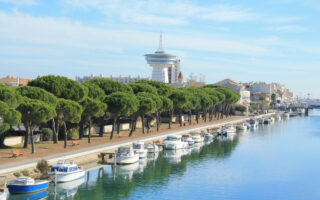Driving in France: What is a “Carte Grise”?
Essential Reading


Every roadworthy vehicle, be it a motorbike, caravan, truck, or car, has to have a legal registration document known as a Carte Grise or, officially, a “certificat d’immatriculation” in France. Here’s what you need to know.
What is a Carte Grise?
A carte grise, which translates literally as “Grey Card,” is the colloquial name given to the official registration certificate – the certificat d’immatriculation – required by all French vehicles. Any vehicle that is bought, sold, or owned by a French citizen or foreign driver living permanently in France must have its own carte grise in order to be legally registered.
The carte grise includes important details about the vehicle, such as the make and type, the model, the engine size, the fuel type, its fiscal rating, and details of its CO2 Emissions gr/km. It also details the name and address of the vehicle’s owner and user, its registration number, and the date that the vehicle was first registered.
The carte grise is an official document, a stamp of authenticity, and a hologram, making it difficult to forge.
Who needs a Carte Grise?
The carte grise is part of the documents required in order for vehicles to be legally owned and driven in France, and a copy of it should be kept with the vehicle at all times. Any vehicle owned by a French citizen or resident in France requires this document, and fines apply for vehicles without the correct documentation.
What about foreign vehicles?
A foreign vehicle from the EU or UK may be driven in France by non-residents during their travels, providing you have all the correct documents from the vehicle’s country of origin. However, if you are bringing a foreign vehicle to France with you permanently or you are a French resident, you must register the car in France and apply for a French carte grise.
See our article on Importing a UK Vehicle and Registering it in France After Brexit
Why do I need a Carte Grise?
The carte grise serves to identify the vehicle and its characteristics, verify its registration and legality, and prove ownership. It is required in a variety of situations, including any time that you take your car to the garage or for its control technique, and when selling your vehicle.
If you are stopped by the police while driving in France, you will almost certainly be asked to present this certificate, alongside other required documents such as a valid controle technique, proof of car insurance, and your driving licence. Note that the carte grise isn’t proof of roadworthiness – the vehicle must also have a valid controle technique if it is over four years old.
If you wish to sell a vehicle in France, you will also need to provide the carte grise, which demonstrates that the vehicle is registered to you. This certificate will then need to be transferred to the new owner within a month of the sale taking place.
The carte grise must also be changed if you change your name or change your address. Failure to do so can result in a fine.
How do I obtain a Carte Grise?
If you buy a car in France, you will need to apply for a new carte grise in your name within a month from the date of purchase. Similarly, if you import a car to France, you should begin the procedure as soon as possible.
Costs apply for a carte grise, which depend on the region in which you are registering your vehicle – when buying a car, these costs are the responsibility of the buyer (although some garages may organise this for you as part of their services). You can find out more and run a simulation of the costs here.
Driving in France
Whether you own a car in France, travel to France in your UK or EU-registered car, or hire a rental car – FrenchEntrée has all the need-to-know info about driving in France. Our Essential Reading articles will take you through buying, registering, and insuring your car, as well as offering tips and advice on driving and car ownership in France.
Share to: Facebook Twitter LinkedIn Email
By Carol Paylor
Leave a reply
Your email address will not be published. Required fields are marked *



